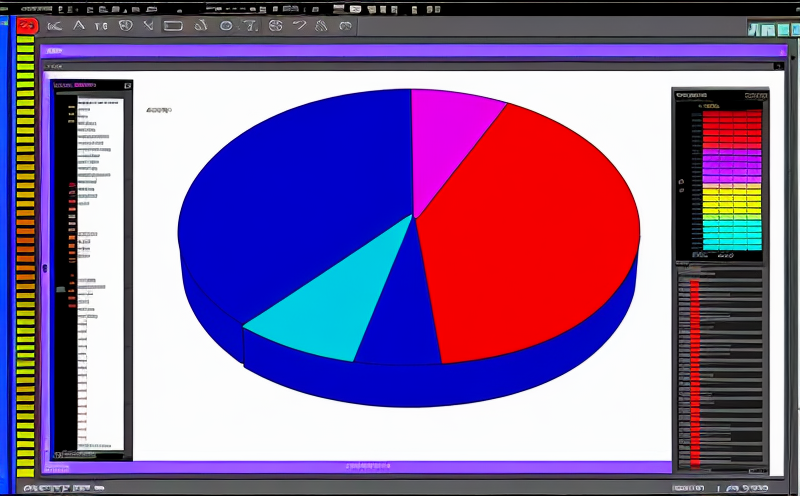DIN 51008 Specific Heat Capacity Testing by Thermal Methods
The DIN 51008 standard is a recognized method for determining specific heat capacity using thermal analysis techniques. This testing is critical in the chemical sector, especially for materials that are used in various industries such as pharmaceuticals, electronics, and manufacturing.
Specific heat capacity (C) is defined as the amount of heat required to raise the temperature of a substance by one degree Celsius without changing its physical state. Measuring this property accurately ensures that the material behaves predictably under different temperatures and environments, which is essential for product performance and safety. The DIN 51008 method is particularly suited for materials with complex thermal behavior.
The process involves heating a sample in a controlled environment while monitoring its temperature change over time. The specific heat capacity is then determined by analyzing the relationship between the absorbed or released heat and the corresponding temperature changes. This method allows for precise measurements, even for small samples, which is crucial when dealing with limited resources.
The testing equipment required for DIN 51008 includes a differential scanning calorimeter (DSC) or a dynamic mechanical thermal analyzer (DMTA). These instruments are capable of providing real-time data on the sample's thermal response. Proper specimen preparation is also key to achieving accurate results. This may involve grinding, sieving, and ensuring homogeneity of the sample.
Once the test is conducted, the resulting specific heat capacity values can be used in various applications. For instance, in pharmaceuticals, knowledge of a drug’s specific heat capacity helps in optimizing its formulation and storage conditions to ensure stability and efficacy. In electronics, understanding this property aids in designing better cooling systems for sensitive components.
Use Cases and Application Examples
- Pharmaceutical Industry: Ensuring the correct dosage of a drug by optimizing its formulation based on specific heat capacity measurements.
- Electronics Manufacturing: Designing efficient cooling solutions for electronic devices that can operate reliably under various environmental conditions.
- Polymer Processing: Optimizing processing temperatures and rates to improve the quality and performance of polymer products.
- Metal Alloy Development: Fine-tuning alloy compositions to achieve desired mechanical properties while maintaining thermal stability.
- The DIN 51008 method is also used in environmental testing, where specific heat capacity can provide insights into the thermal conductivity of materials used in insulation products.
- In food science, understanding the specific heat capacity of ingredients helps in developing recipes that are both efficient and safe for storage and preparation.
Why It Matters
The accuracy of specific heat capacity measurements is crucial for industries that rely on materials with precise thermal behavior. Inaccurate or inconsistent results can lead to product failures, increased production costs, and potential safety hazards.
For quality managers and compliance officers, ensuring adherence to standards like DIN 51008 helps maintain the integrity of their products in the marketplace. This standard provides a consistent method for testing that is recognized globally, which can be advantageous when dealing with international trade or regulatory requirements.
R&D engineers benefit from this testing as it allows them to innovate without compromising on safety and performance. By understanding how materials respond thermally under different conditions, they can develop more efficient products, reduce waste, and improve overall sustainability. Procurement teams also find value in DIN 51008 since it ensures that the raw materials or finished goods meet specified thermal properties.
The reliability of specific heat capacity measurements is essential for maintaining quality control throughout the manufacturing process. This standard helps in identifying any deviations from expected performance early on, allowing for timely corrective actions to be taken.
Eurolab Advantages
Eurolab offers comprehensive DIN 51008 testing services that are conducted by highly skilled and experienced personnel using state-of-the-art equipment. Our laboratories are equipped with advanced DSCs and DMtas that meet or exceed the requirements of DIN 51008.
Our team of experts ensures that every sample is prepared meticulously, following strict guidelines to ensure accurate results. We provide detailed reports that not only list the specific heat capacity values but also offer insights into potential applications for these findings. Our services are tailored to meet the needs of our clients, whether they are looking for compliance testing or research and development support.
We pride ourselves on delivering timely, reliable results with a high degree of accuracy. By choosing Eurolab, you can be confident that your materials will undergo thorough testing that adheres to international standards. This ensures that your products meet the highest quality expectations both locally and internationally.





